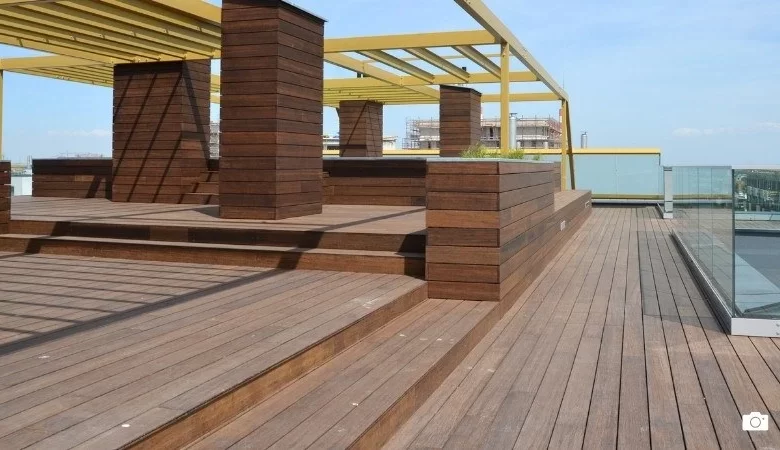Composite Decking: The Pros and Cons of bamboo flooring

When it comes to composite decking, one of the most popular options is bamboo flooring. Not only is it environmentally friendly, but it is also cost-effective and can be installed quickly. However, just like any type of flooring, there are pros and cons to choosing bamboo flooring. In this blog post, we will discuss the advantages and disadvantages of using bamboo flooring for your composite decking.
What is Bamboo?
Bamboo is a type of grass that grows quickly and easily, making it a popular choice for flooring due to its eco-friendly properties. While bamboo is technically grass, it komposittrall many of the same characteristics as hardwood. It is also simple to clean, as it requires just a damp mop for regular maintenance. Finally, bamboo is naturally water-resistant and does not need any additional treatments to make it resistant to spills or moisture.In fact, bamboo can be fashioned into a durable, attractive composite flooring option. It is made up of several layers of pressed-together strands, usually in a patterned layout. This creates an attractive, strong flooring option with improved water resistance compared to other materials. The composite problem that sometimes arises is that bamboo flooring may require more maintenance than other types of floors because of its susceptibility to moisture. Regular cleaning and sealing are necessary to maintain its durability and longevity.
:max_bytes(150000):strip_icc()/benefits-and-drawbacks-of-bamboo-floors-1314694_hero_0070-8eaac0f3cc5543c7a73bd85f4106d841.jpg)
The Pros of Bamboo Flooring
A bamboo is a great option for flooring due to its numerous advantages. It is an eco-friendly choice since it grows quickly and can be harvested in a fraction of the time of hardwood trees. This makes it a more cost-effective alternative to traditional hardwood flooring. Additionally, bamboo is highly durable and can stand up to heavy foot traffic and everyday wear and tear.
Bamboo composite flooring is also attractive. With its natural grain pattern, it adds a unique touch to any room. It also has a warm and inviting feel that makes it a popular choice for residential spaces. Bamboo is also hypoallergenic and resists the growth of bacteria and other allergens, making it perfect for households with allergies or asthma.
In terms of installation, bamboo composite flooring is easy to install and can be cut to fit around any shape. It is also simple to clean, as it requires just a damp mop for regular maintenance. Finally, bamboo is naturally water-resistant and does not need any additional treatments to make it resistant to spills or moisture.
The Cons of Bamboo Flooring
Although there are many pros to bamboo flooring, there are some cons that should be taken into consideration. Composite bamboo is more prone to moisture damage than hardwood flooring. It can be difficult to install and is not as a scratch or dent resistant as some other types of flooring. If komposittrall problem to too much moisture, the floor may swell and discolor, requiring repairs or replacement. Additionally, bamboo is susceptible to staining, so it needs to be sealed and maintained regularly to maintain its look.
Read more: PVC Decking vs. Wood Decking: Which is More Durable?